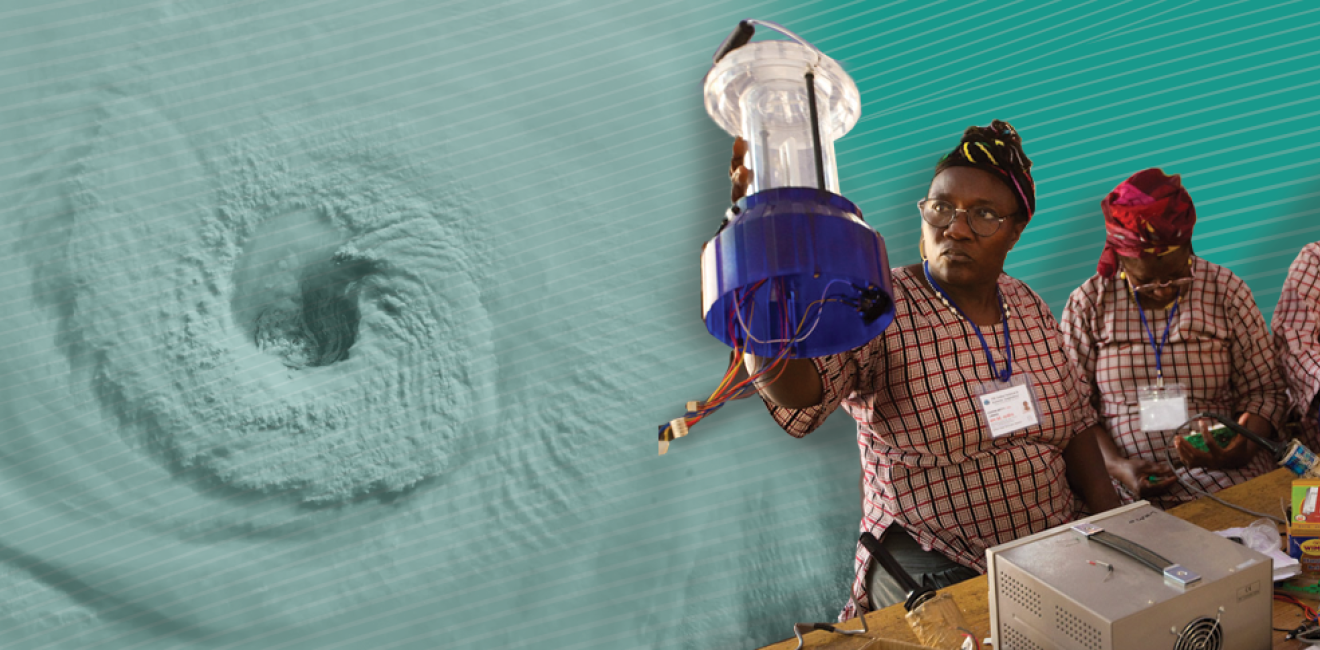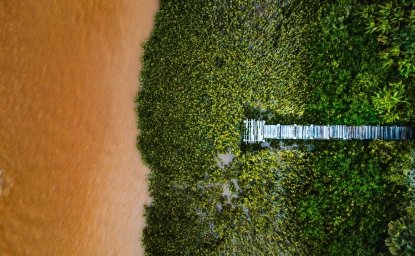Climate change is the greatest threat facing humanity right now. Though we will all feel its impacts, not all of us will be affected equally, making it not just an important foreign policy issue but also an important issue with regard to equity and democracy. For instance, while some people have yet to experience any climate impacts in their own lives, others have already seen their livelihoods destroyed by climate change-driven floods, hurricanes, and droughts. In my country, Uganda, I have seen people, especially in rural communities, struggle with food and water scarcity—yet we emit less carbon dioxide per capita than nearly every other country. This clearly shows the injustices that come with climate change and demonstrates that the foreign policy community needs to act to protect the developing world and the most vulnerable within it.
There are three key steps to ensuring that climate action is democratic and equitable, and thus more effective. First, the international community needs to provide more democratic development finance to address the needs of communities struggling with air and water pollution and support developing countries with mitigation and adaptation efforts. Second, ecocide needs to be recognized under international law—this is a crucial step towards global environmental justice. Third, we need to bring more voices into the international climate debate, particularly those who suffer the most from climate impacts, namely frontline communities and women.
Encourage More Democratic Development Finance
The objective of development finance is to build more livable and sustainable communities, while the role of democracy is to ensure that the interests and needs of the people are reflected in decision-making.
Democratic development finance needs to support climate-friendly projects for both mitigation and adaptation. Initiatives that are working to build resilience in the most affected communities and countries should be prioritized. Efforts, for instance, that increase food security for the poor, improve water security through water harvesting mechanisms such as boreholes, and bring solar-power installations or eco-friendly stoves to communities.
For so long, activists have tried to drive change in their communities with the resources available to them. For example, I started a project in Uganda —relying on funding from individual internet donors—that involves the installation of solar energy and eco-friendly stoves in schools. These stoves help to reduce the amount of firewood that schools use to prepare food. They also ensure clean cooking for the students and protect the chefs from inhaling smoke as they prepare food. Taking clean cooking a step further, the project includes the installation of solar systems in schools to support a broader transition to renewable energy.
Many other people are working to build resilience in the most affected communities, but they face the basic challenge of a lack of financing. It is estimated that the United Nation’s Sustainability Development Goals require $5-7 trillion to ensure the goals are met by 2030—and yet in 2018, Official Development Assistance totaled just $149 billion. Policymakers need to support the policies that enable and encourage financing for young people to build resilience in the most affected communities.
Foreign policymakers should drive green investments globally, such as clean transportation and renewable energy. The developing countries that are the most affected by the climate crisis need assistance in running these investments. Developing investment strategies through a democratic lens helps us recognize who is suffering from climate injustice and carve out a more equitable pathway forward, by allocating financing to increase the resilience of those who are most affected. The people are speaking up and demanding change.
Address Ecocide and Environmental Crimes in International Law
The term “ecocide” refers to human activity that violates the principles of environmental justice, for example causing extensive damage to—or destroying—ecosystems, or harming the health and well-being of a species (including humans). While we have many international agreements and laws meant to protect the environment and climate, none of them explicitly address ecocide. Ecocide needs to be recognized under international law as a crime.
In fact, justice systems are becoming the new battleground between activists and bad climate actors. The fossil fuel industry is lawyering up. To date, nine U.S. cities have sued the fossil fuel industry for climate damages. California fisherman are going after oil companies for their role in warming the Pacific Ocean, a process that soaks the Dungeness crabs they harvest with a dangerous neurotoxin. The Dutch Supreme Court ruled in the Urgenda climate case that the Dutch government is obligated to reduce emissions in line with its human rights obligations. And in Juliana vs. U.S., a group of young Americans have filed suit against their government, “assert[ing] that, through the government’s affirmative actions that cause climate change, it has violated the youngest generation’s constitutional rights to life, liberty, and property, as well as failed to protect essential public trust resources.”
Governments and corporations need to be held responsible for violating human rights. Foreign policymakers should urge the fulfilment of environmental legal obligations to combat climate change. This will help to reduce potential environmental risks in the most affected communities.
Listen, then Lead
Last but not least, we need to recognize all voices in the international arena, particularly those who most often face the consequences of climate change-driven extreme weather.
Women’s roles as primary caregivers and providers of fuel and food make them more vulnerable to drought and floods. The authors of a Georgetown Institute for Women, Peace and Security report write, “Around the world, women tend to be marginalized from political and economic power and have limited access to financial and material resources—particularly in conflict-affected, post-conflict, or less economically developed settings—which can exacerbate their vulnerability to the impacts of climate change.”
There’s a simple illustration of this from Uganda: one of the ways to survive a flood is to climb a tree, and yet women in some areas are strictly not allowed to climb trees, because doing so would taint their dignity according to cultural values.
One way to improve the situation is to include more women in conversations on climate action. This means providing equal space and resources for women and men to participate in climate change decision-making and action at all levels and on all platforms. Decision-making needs to include diverse voices from developing communities and Indigenous communities. These people suffer the most and they deserve platforms to demand justice and inform responses. There is no climate justice without respecting diversity in the climate movement.
We cannot address climate change without democracy and equity. We cannot. We need leaders who will take swift and equitable climate action. We need leaders who will enforce laws to protect people and the planet.
Author

Environmental Change and Security Program
The Environmental Change and Security Program (ECSP) explores the connections between environmental change, health, and population dynamics and their links to conflict, human insecurity, and foreign policy. Read more







